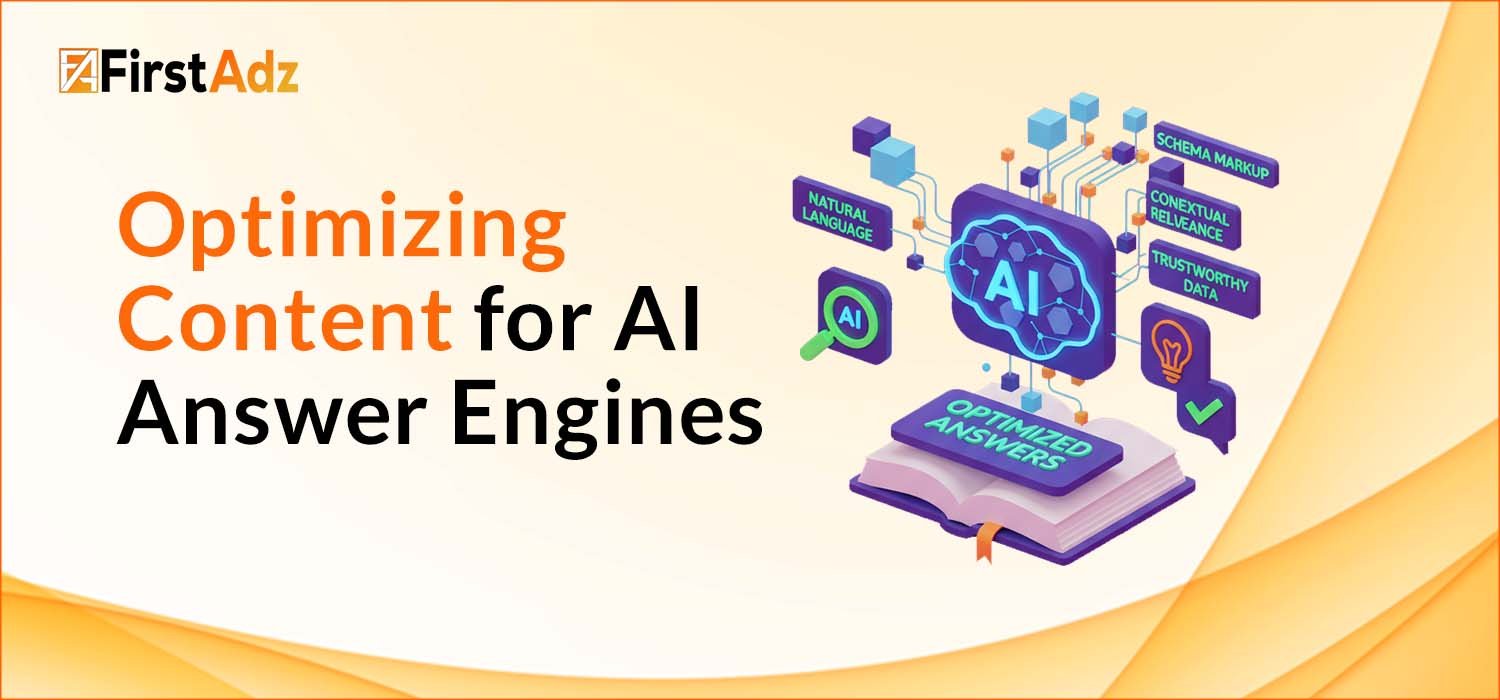Only three months are left in 2025, and the way people search online for their queries has changed suddenly compared to the start of 2025.
Remember a few years back, when ranking #1 on the results pages was nothing less than winning a war? High traffic, low bounce rates, and high conversion rates were the ultimate goal.
But nowadays, traditional search engines are no longer the only players in the town.
AI-generated answer engines such as Claude and ChatGPT have overtaken them. These AI engines directly provide AI-based answers to users’ queries, giving a high warning sign to content creators and businesses to rethink their future SEO strategies and the need for businesses to adapt to these changes.
These search engines use artificial intelligence, particularly machine learning and natural language processing (NLP), to understand the user’s search intent and provide more relevant and personalized results compared to traditional keyword-based search engines.
So, does it mean the end of the traditional and old-school SEO methods?
Well, that’s an important thing that we’re surely going to discuss later in this blog.
This sudden shift of search engines from result pages to showing off their own AI-generated answers raises questions about the future of SEO strategies and the need for businesses to adapt to these changes.
In this guide, we will cover the detailed and elaborative reasons to show you the exact roadmap behind the AI-generated answer engines, how they pick the answers, and how you can get your answer to appear in the AI-generated answer engines.
How Does an AI Search Engine Work?
Whether it’s ChatGPT or any other of your favorite AI search engines, whenever you need some information, you just mention your query and get instant results within one to two seconds.
But have you ever thought about how an AI search engine works? From where do they get the information, and how do they process and modify it according to your query?
From refining search accuracy to delivering personalized content, AI has completely revolutionized the old-school way of how we used to interact with search engines.
AI-based search engines use advanced technologies like machine learning (ML) or natural language processing (NLP) to process users’ search queries more like a human would, focusing on context, meaning, and the relationship between data, rather than just focusing on the words.
Where the traditional search engines solely focus on filtering out the web pages for a user query depending on the keyword, AI search engines go deeper, analyzing patterns, user intent, and context to understand what exactly a user wants.
From Where Do AI-Generated Answer Engines Get the Information?
From a basic how-to query to a complex medical situation, AI-generated answer engines have answers to all and every user query.
Modern AI answer engines (e.g., ChatGPT, Claude, Gemini, and others) rely on a combination of data sources, architecture, and tools to generate answers.
These answer engines obtain information primarily from massive datasets and knowledge graphs, which allows them to draw connections between different pieces of information and provide more accurate and relevant answers to the user’s query.
In addition to that, as humans utilize the answer engines, their modules store all the information in a structured format in their databases. It allows the AI to share more accurate and relevant information for the next user query and avoid misinformation or harmful content.
Hence, the information stored with the answer engines is increasing rapidly after every user query.
And yes, it also finds out the relevant information from the traditional search engines and modifies and presents it to users with the help of NLP techniques.
How to Optimize Your Content for AI-Generated Answer Engines?
As we are approaching the end of 2025, one thing that all marketers are pained to see is the shift of users from Google and other traditional search engines to AI-generated answer engines.
The results of organic marketing strategies like SEO and content marketing have been reduced effectively.
Not entirely, but the result is clearly visible.
But marketing doesn’t stop due to any unforeseen circumstances. Changes are made to make the businesses take a step back and stand again with more power.
So, if you want to showcase your content in an AI-generated answer, then follow:
- Discoverable: Make your content easy for AI engines to find with the help of relevant keywords and structured data.
- Understandable: Ensure that your content is clear, concise, and easy for AI engines to interpret and present as an answer to user queries.
- Contextually Rich: Focus on creating contextually rich content that addresses specific questions or users’ queries in detail to increase the chances of being featured in AI-generated answers.
- Credible: Establish credibility by providing accurate and relevant information from reputable sources.
TIP: If you want AI engines to show information about your business or brand, then use social and massive platforms like Wikipedia, LinkedIn, and Google My Business to increase your online presence and credibility. This will give a green flag to your business in the eyes of AI engines, marking it as a reliable source of information. That way, you will increase the chances of showcasing your business in front of a user’s query on AI search engines.
Do’s & Don’ts to Make Your Content Rank in AI Answer Engines
Getting your content ranked on the AI-answer engines is crucial for increasing visibility and credibility in the digital world. To achieve this, make sure to follow the dos and don’ts mentioned below:
Do’s:
✅ Focus on creating fresh content with the latest information, insights, and stats.
✅ Use clear and concise language so that AI will understand and categorize your content.
✅ Throughout the content, focus on search intent. Address why and how, not just the keywords.
✅ Add FAQs at the end of articles to cover related queries.
✅ Monitor AI-generated responses regularly.
❌ Avoid keyword stuffing, as AI prioritizes context over repetition.
❌ Don’t publish thin content, as short and generic content gets ignored by search engines.
❌ Don’t create clickbait headlines, as misleading content lowers trust and visibility.
❌ Don’t ignore E-E-A-T (Experience, Expertise, Authoritativeness, Trustworthiness), as AI engines give more privileges to credible content.
Conclusion
By optimizing your website content for AI search engines, you can improve the discoverability and trustworthiness of your brand. While performing the SEO and content marketing tactics, it’s also important to effectively optimize your site for AI search engines. This way, you can ensure that you’re targeting the audience from different platforms and can increase the chances of being seen as a credible source in the digital landscape.
Frequently Asked Questions (FAQs)
1. Why do AI-generated answers ignore my website content even when it’s ranking on Google?
A: The reason is that the AI engine focuses on context, authority, and clarity, not just on rankings. If the content on your website is not properly structured, credible, or authoritative, AI engines will prefer another source, even if your content ranked #1 on Google.
2. How often should I keep updating my website content so that AI engines don’t consider it outdated?
A: Aim to update the content within 3-6 months. Outdated stats or information often lead to decreased credibility and authority, which forces the AI engines to prioritize fresh content over yours.
3. Why does AI sometimes mix my content with my competitors?
A: Due to its blending sources, AI engines may sometimes fix your content with your competitors if they find similarities in the topics, keywords, or structure of the content.
4. Do AI engines actually prefer human-written content over AI-written content?
A: Not deep-rooted, but AI engines actually focus on clarity, accuracy, and trust. But human content often scores higher on credibility and authority, which can give it an edge over AI-written content in some cases.
5. How long do AI answer engines take to recognize new content?
A: It varies depending on the engine. For example, Perplexity often takes weeks and months to update fresh content, whereas ChatGPT almost goes over new content in real-time.

A results-driven digital marketer, Jagdish specializes in crafting strategies that boost online visibility, engagement, and conversions. With a passion for SEO, content marketing, and data-driven campaigns, he helps brands grow and connect meaningfully with their audience.


